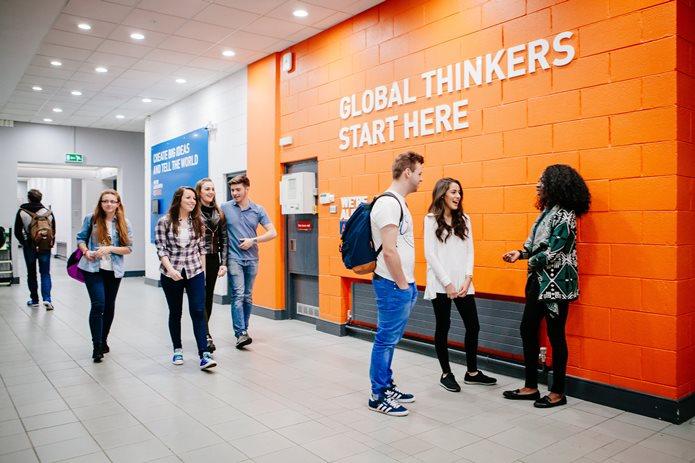

DCU Business Students help charities go digital
Dublin City University Business School has joined forces with the Disability Federation of Ireland (DFI) to help ten Irish charities maximise their digital advertising capacity.
Over 40 students from DCU’s Masters in Digital Marketing are working with the charities over a three month period to help them get the best from their Google Ad Grant.
This is a fund worth up to $10,000 USD of in-kind advertising every month which can ultimately help charities to recruit more volunteers, attract donations and share their story with audiences all over the globe.
The scheme was launched on February 8th and after just one month some spectacular results were seen:
The students working on the Arthritis Ireland campaign have brought 18% more visitors to the website than the previous campaign and are utilising almost 10 times the industry average spend of the Google Grant.
The Disability Federation of Ireland have received over 2,500 new website visitors because of the students and their work has also raised the click through rate by 14%, this will help ensure DFI meet the new 5% minimum CTR requirement for a charity account to remain active.
The National Council for the Blind of Ireland ads have been seen over eighty thousand times bringing nearly five and a half thousand new visitors to the site.
The students working on this account also brought 5 times more donors to the site than the previous campaign.
Other selected charities include: Arthritis Ireland; National Women’s Council of Ireland; Acquired Brain Injury Ireland; Polio Survivors Ireland; Graphic Studio Dublin; Ability West.
Speaking about the initiative, Theo Lynn, Professor of Digital Business and Director of Industry Engagement at DCU’S Business School, said:
“This is a win-win for all concerned. Students get real world experience by having the opportunity to deliver campaigns for clients and with the introduction of new Google regulations, the support comes at a good time for charities.
We have a digital research unit at DCU that monitors the student’s performance and we have high expectations of them. The scheme is every bit as demanding if not more than those they will face when they graduate.
For example I expect to see 80-90% utilisation of the Google Grants across these accounts.”
To put this in context, internationally the average grantee only uses about $330 per month out of the $10,000 that Google offers.
DFI’s Communications Manager, Clare Cronin, explained. “Most Irish charities are tiny by international standards and are not well placed to hire and pay for the sort of highly skilled help that would allow them to maximise their Google Grants.
It’s a horrid irony that we have free advertising but we frequently just don’t have the skilled staff to use it. And these new regulations put it up to charities to use it or lose it.”
Google has given recipients of the grant two months from the start of the year to increase their CTR or click-through-rate from 1% to 5% or lose the grant.
“That’s a huge hike and I’ve no doubt that as we speak many charities are regretfully losing their grants”, she said. There are several other challenging new requirements as well as opportunities such as the removal of the old $2 bid ceiling.
“The public wants the best returns on their donations. Our member organisations are trying to keep up with a rapidly changing digital world. This high skilled help from DCU is more than welcome in helping us face these often competing demands.
“We (DFI) feel that Google Grants is an investment that can and will pay off for charities. Because the user-interface is complex it’s often ignored in favour of promotion on social media with much more uncertain returns”, said Clare Cronin.
The results in so far from the DCU teams clearly show investing in Google Ad Grants could pay for itself for the charity sector just as it does in other business areas.
Charities who fundraise or sell anything from tickets to second-hand clothes will be especially impressive with concrete results to their bottom line.
Prof Lynn said: “This is hopefully the start of a programme which will ultimately support many more charities. As we approach the end of this academic year we’ll do some training to allow the organisations to manage their own accounts over the summer.
We’re also looking at ways in which we can offer help in areas such as Search Engine Optimisation and social media management.”
